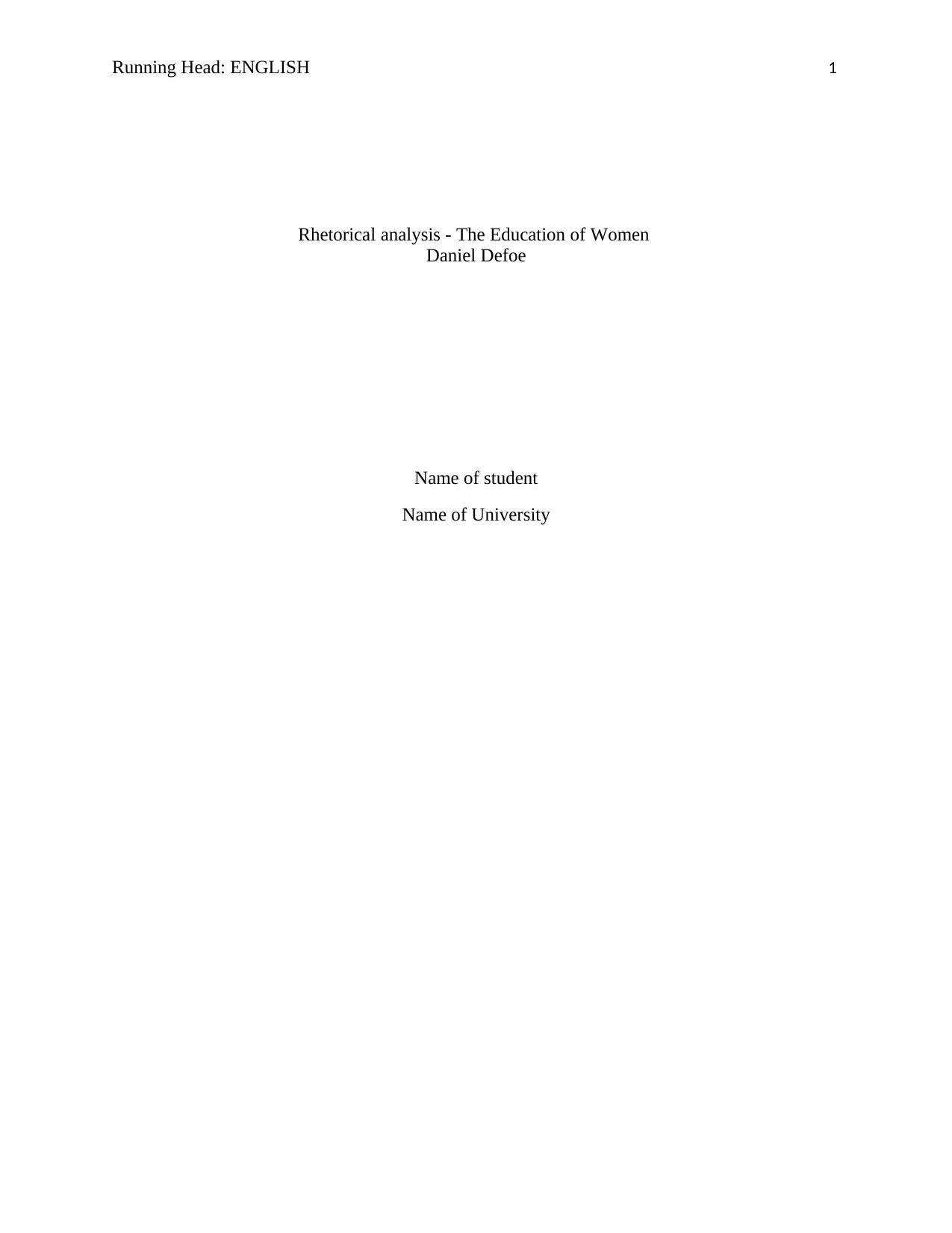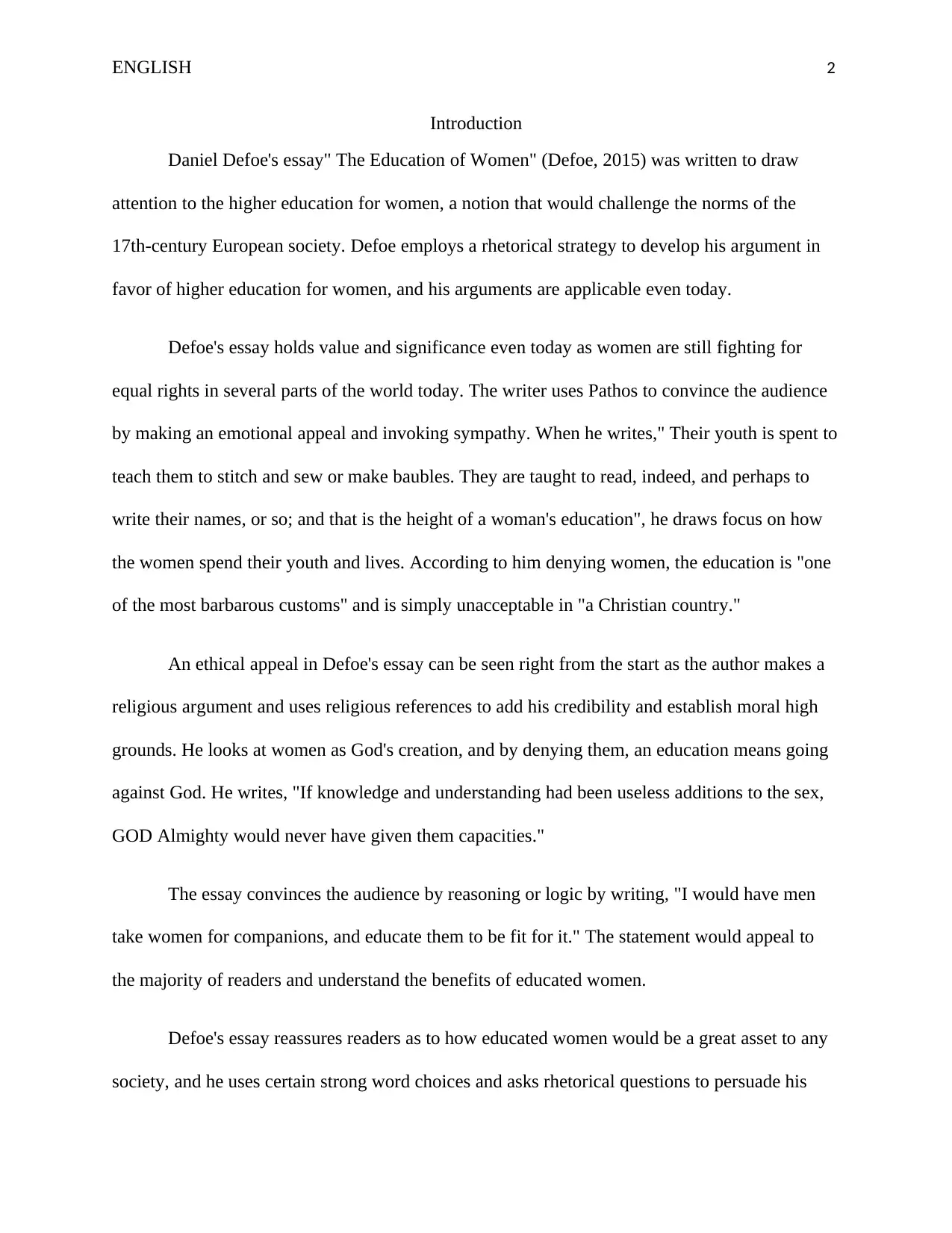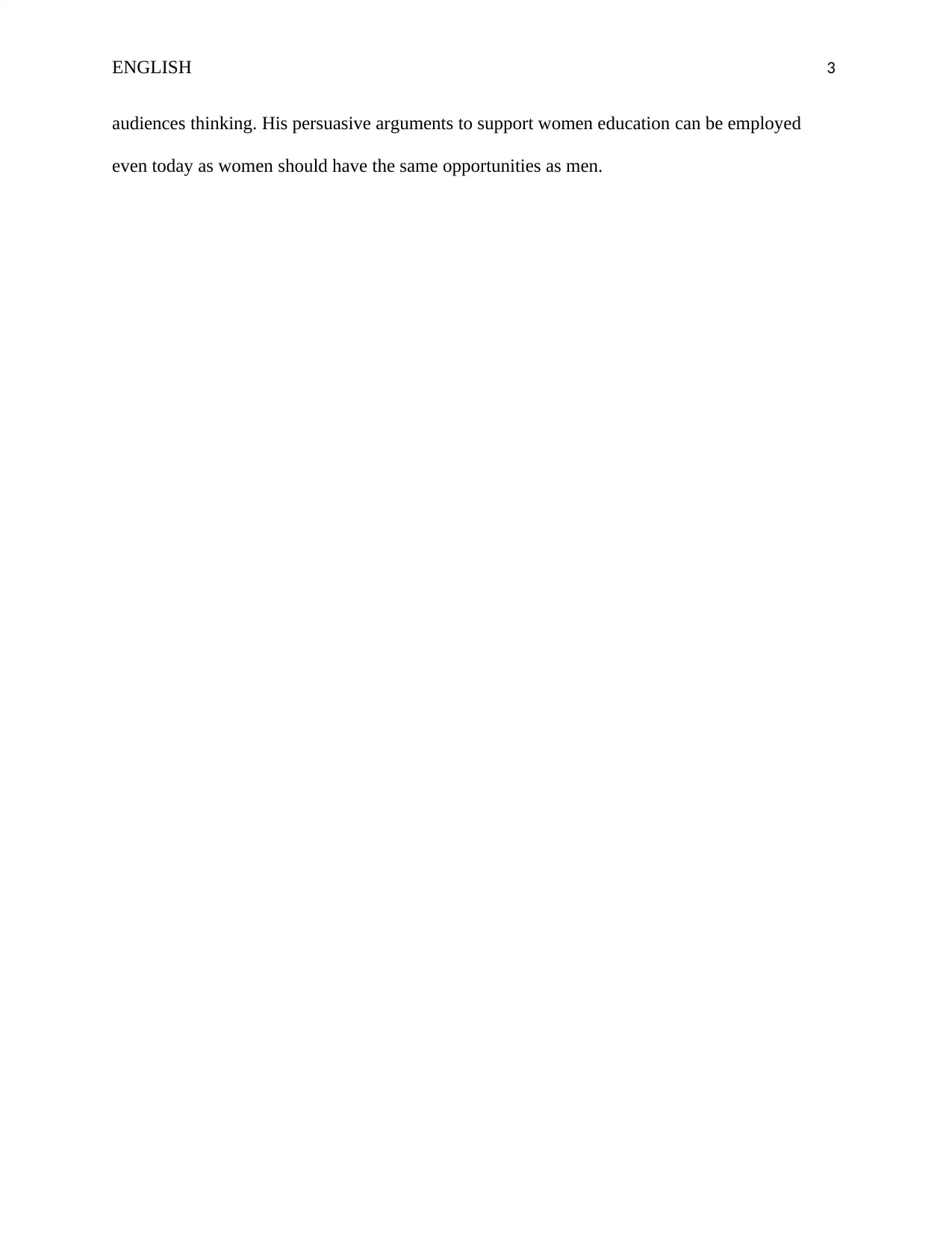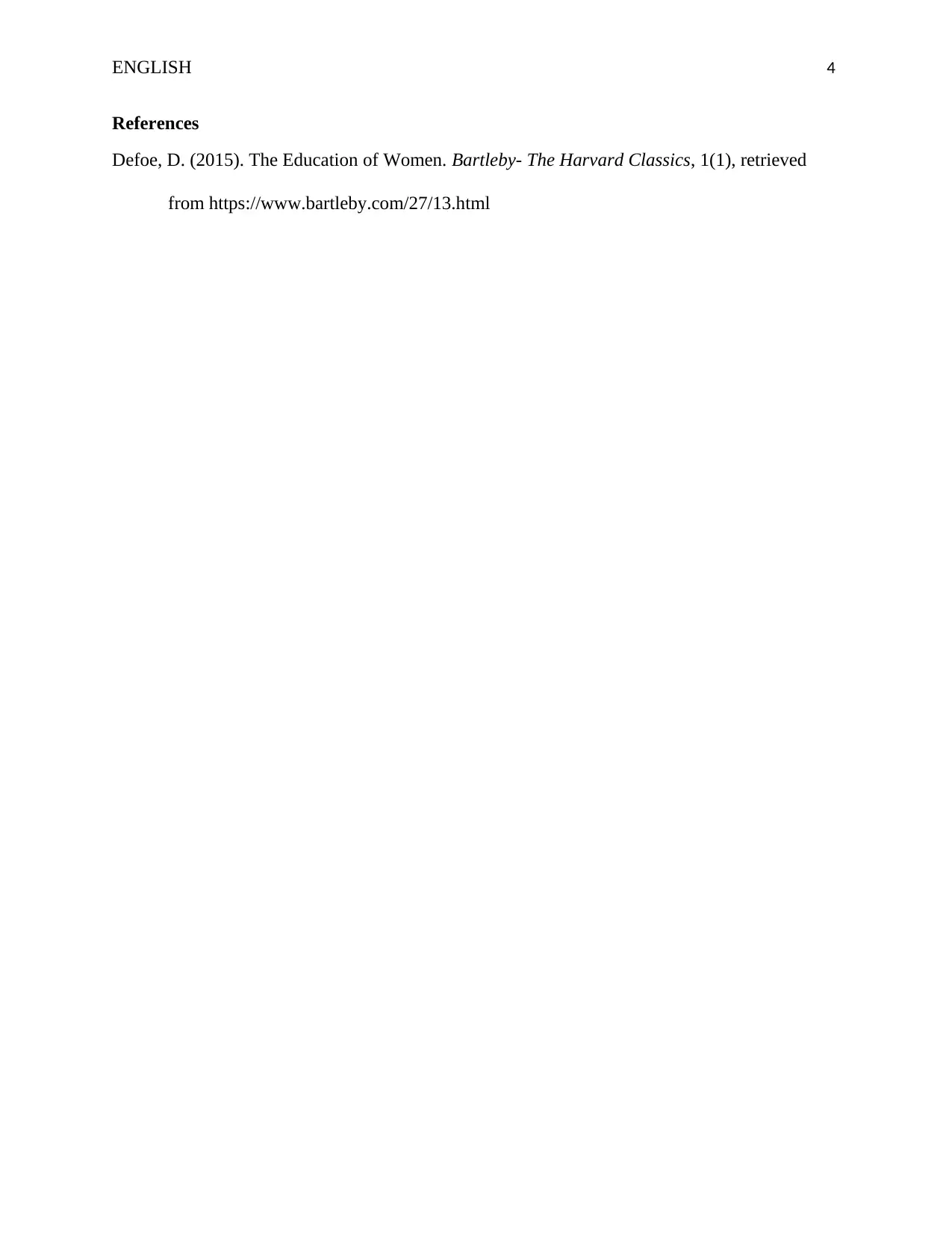Rhetorical Analysis of Daniel Defoe's 'Education of Women' Essay
VerifiedAdded on 2022/10/08
|4
|430
|29
Essay
AI Summary
This essay presents a rhetorical analysis of Daniel Defoe's 'The Education of Women,' examining his arguments in favor of higher education for women. The analysis focuses on Defoe's use of rhetorical strategies, including pathos, ethos, and logos, to persuade his audience. The essay highlights how Defoe employs emotional appeals, ethical arguments, and logical reasoning to support his claims, demonstrating the enduring relevance of his ideas in contemporary discussions about women's rights and education. The analysis also explores Defoe's persuasive techniques, such as strong word choices and rhetorical questions, to emphasize the benefits of educated women for society. The conclusion emphasizes the continued importance of Defoe's arguments in advocating for equal opportunities for women.
1 out of 4










![[object Object]](/_next/static/media/star-bottom.7253800d.svg)